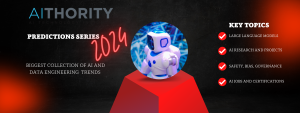Terrascope Announces the Ability to Measure and Reduce FLAG Emissions on Its Decarbonisation Platform
Terrascope becomes one of the first SaaS Platforms with the ability to measure emissions in line with FLAG
Terrascope, an end-to-end enterprise decarbonisation platform, announced the addition of a new module to its SaaS platform, specifically designed to empower enterprises in land-intensive sectors with the measurement and management of Forest, Land, and Agriculture (FLAG) emissions. This enhancement makes Terrascope one of the first SaaS platforms to incorporate FLAG emission capabilities, offering a robust solution for organisations to achieve more accurate carbon accounting and to advance their sustainability objectives.
The Forest, Land and Agriculture Guidance [FLAG] is the world’s first standard for companies in land-intensive sectors to set science-based targets (SBTs) that include land-based emissions reductions and removals. The SBTi FLAG Guidance impacts a number of sectors in the food and agricultural value chain, such as food & beverage, agriculture, packaged goods, luxury, hospitality, amongst others. The food and agriculture value chain contributes to 34% of global emissions, largely from upstream activities such as deforestation, land use changes, and agricultural practices. The direct dependence on upstream activities to land use emissions underscores the urgency for tools like the FLAG module, in order to enable enterprises to effectively manage their land-based emissions, aligning with science-based targets and the Paris Agreement’s goal of limiting global warming.
Recommended AI News: Riding on the Generative AI Hype, CDP Needs a New Definition in 2024

Maya Hari, CEO, Terrascope, said, “We are excited to unveil our new FLAG module, to further support enterprises in the food & agriculture value chain on their decarbonisation journey. Food & Agri value chains represent approximately 30% of global emissions, with a majority of these emissions originating upstream, making it essential to have a precise understanding and management of land-related emission sources. Integrating FLAG capabilities into our platform is a pivotal step in enabling large enterprises to identify and act upon these land-related emissions more effectively.”
Recommended AI News: Daniel Martin Joins Pipedrive as VP of Customer Experience
Terrascope’s approach to managing and reducing FLAG emissions includes compliance with SBTi, as well as alignment with the new GHG Protocol for land sector removals. This module enables enterprises in the FLAG sectors to measure land-based emissions from their own operations as well as their supply chain. Enterprises can also measure their decarbonisation initiatives involving carbon sequestration and better land management using the Terrascope’s FLAG Module.
Starting with FLAG screening, Terrascope’s FLAG Module reviews a company’s operational and value chain model to determine their FLAG exposure and the need for SBT FLAG Targets. For companies that need this, a measurement tool covering land use change estimation and land management emissions from farming activities such as fertiliser application, farm activities or livestock rearing is deployed. This includes proprietary capabilities to disaggregate FLAG emissions from third party databases. The emission calculations are consolidated into separate FLAG and Energy inventories, ensuring accuracy and avoiding double counting. The FLAG module then enables enterprises to set SBTI-aligned FLAG targets, and their long- and short-term decarbonisation plans.
For enterprises required to set FLAG SBT targets, the Terrascope FLAG module is an essential asset. It enhances operational efficiency and optimises decarbonisation investments, while simplifying compliance efforts. The module provides a transparent, comprehensive view on a singular platform, uniquely enabling the inclusion of carbon removal strategies in decarbonisation plans.
Nikita Asthana, Global Head & Vice President, Sustainability Finance, Olam Agri, said, “Terrascope has been a key partner and enabler of our decarbonisation journey. Along with the ongoing reduction planning, the timely addition of the FLAG module to the platform is set to further enhance our decarbonisation strategy, and we are looking forward to the precise tools that will streamline our reporting and enable the management of land-related emissions in line with our sustainability goals.”
Recommended AI News: Data Scientist Bachelor’s Degree Program Launched by Pioneer in Workforce Relevant Education
As a decarbonisation platform with a focus on Food & Agriculture companies across the value chain, from growers, to processors, manufacturers, distributors and retailers, FLAG is one of many upcoming product modules that Terrascope is launching to support material emissions reductions. Additional capabilities to calculate emissions from Land Use Change and farming activities such as fertiliser application and livestock rearing, to modelling Commodity Pathways and Land Sector Carbon Removals will be available in subsequent releases.
[To share your insights with us, please write to sghosh@martechseries.com]








Comments are closed.